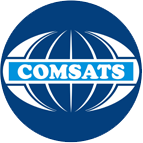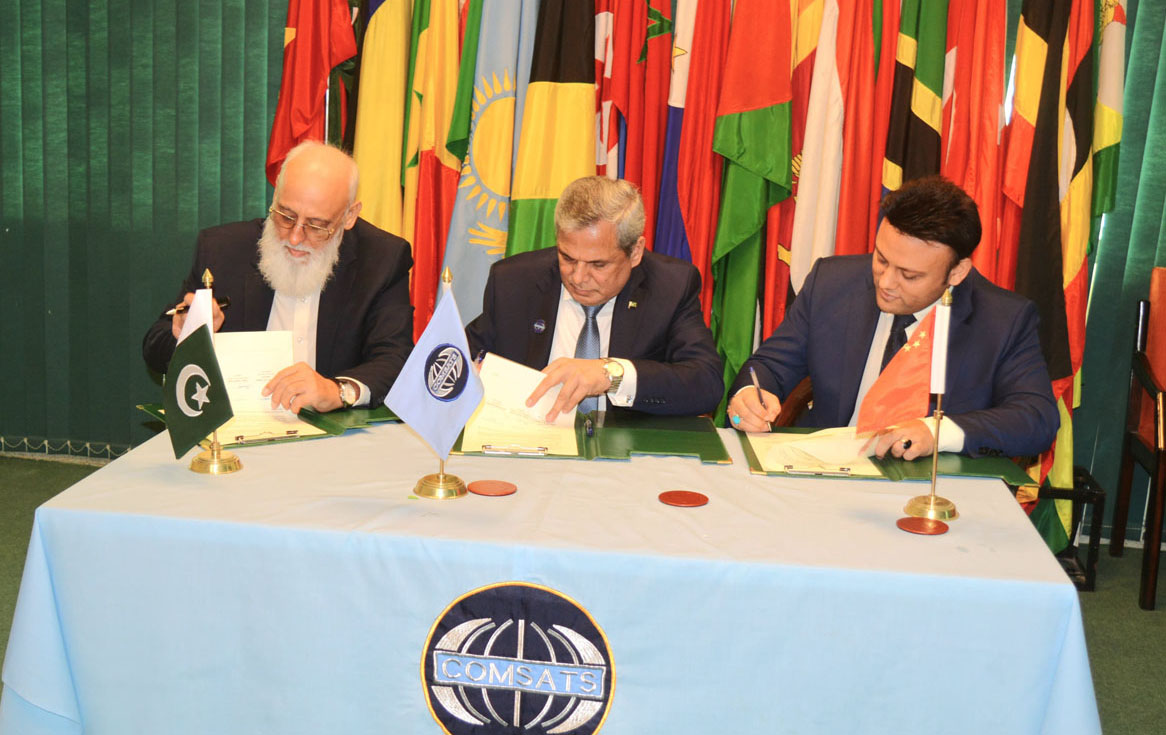COMSATS and the South Centre through an MoU revitalized their commitment to collaborate with each other for advancement of South-South and Triangular Cooperation (SSTrC) and for promoting sustainable soci0-economic development in their respective Member States.
As organizations sharing similar programmatic focus, COMSATS and South Centre formalized a Memorandum of Understanding on August 25, 2022 in order to strengthen their existing ties. Under the agreement signed, the two organizations agreed to continue supporting SSTrC through innovative and comprehensive regional and cross-regional cooperation initiatives; improving information exchange leading to a greater awareness and wider access to available knowledge and experience; facilitating high-level policy debates and technical exchanges towards strengthening institutional partnerships; as well as engaging in policy development and advocacy, capacity building, and joint training programs, publications and research studies in a mutually agreed thrust areas including but not limited to social development, S&T, climate change, and health and food security. The agreement also paves way for the two organizations to consult each other on important matters and invite officials to attend their statutory body meetings as observers.
On behalf of COMSATS, the MOU was signed by its Executive Director, Dr. Ghulam Muhammad Memon, who also is the Federal Secretary for Science and Technology, Government of Pakistan, while Dr. Carlos María Correa signed it for the South Centre as its Executive Director.
The signing was done during a meeting between a two-member delegation of the South Centre and the Executive Director COMSATS at the Ministry of Science and Technology, Islamabad, Pakistan. The South Centre delegation comprised its Senior Advisor SSTrC and Development Finance, Prof. Yuefen Li, and Lead Programme Officer, Mr. Daniel Uribe. The meeting also had the participation of Mr. Irfan Hayee, Additional Director Programs of COMSATS, and two senior officials of the Ministry Science and Technology, its Additional Secretary, Dr. Ata ur Rehman, and the Joint Scientific Advisor (International Liaison), Mr. Zain ul Abedin.
Dr. Memon welcomed the South Centre’s officials at his office who were visiting Islamabad in connection with an initiative that the Centre is patronizing in collaboration with Islamic Development Bank (IsDB) to institutionalize South-South and Triangular Cooperation (SSTrc) from Pakistan. This initiative is being supported by the Ministry of Foreign Affairs (MoFA), Government of Pakistan, and will have the support of other government departments, national, regional and international entities. At the outset, Prof. Li thanked the Executive Director COMSATS for meeting the delegation and affording them the opportunity for discussing mutual cooperation matters. She briefed the participants of the meeting about a national entity envisaged by the South Centre and IsDB to be established in Pakistan to promote outward SSTrC, especially in the wake of changing landscape of international development cooperation. As a development finance expert, she shared her assessment on Pakistan’s national eco-system for undertaking such an initiative and explained the conception behind establishing a national agency to support outward SSTrC. She elaborated that this joint effort is being made in acknowledgement of the growing importance being given to SSTrC activities, and the diversion of Official Development Assistance (ODA) from the countries of the Global South.
Prof. Li also expressed her satisfaction on the consultative meeting organized by the Ministry of Foreign Affairs, on August 23, 2022, where different stakeholders, including COMSATS’ representatives, exchanged views and held meaningful discussions on the draft charter of the proposed national entity. She noted that two key documents were shared with participants the meeting: (i) Draft Assessment Report of Pakistan’s National Ecosystem for South-South and Triangular Cooperation and international Development Cooperation’, and (ii) ‘Consultative Paper on Charter Document on Establishing Pakistan’s National Entity for South-South and Triangular Cooperation’.
Prof. Li noted that she is keen to receive feedback from all the stakeholders on the two documents in order to customize the national entity’s charter as per the aspirations of relevant government departments and other stakeholders. She further explained that in this connection, she has been holding meetings with high officials of various ministries. She noted that once received from different stakeholders, the feedback will be shared with the Ministry of Foreign Affairs in order to assess the operational support need of the proposed agency.
In response to a question by Additional Secretary MoST, Prof. Li explained that the scope of this national entity’s operation is envisaged to be all-encompassing, however science and technology will remain an important area for outward SSTrC. Highlighting the importance of the national entity for SSTrC, Prof. Li added that this agency will play an important role in facilitating various stakeholders for SSTrC and act as a hub and information resource, and provide one window operations on relevant cooperation prospects. It is also hoped to strengthen Pakistan’s foreign policy, trade and commerce. She also noted that such an entity will be able to open access to useful databases, reports and studies, developed by various international players, such as UN agencies, for meaningful cooperation and decision making.
Dr. Memon highly appreciated the joint initiative taken by the South Centre and IsDB. He extended the support of his Ministry as well as COMSATS in making the national entity for SSTrC in Pakistan a success. In this regard, he also proposed to hold a webinar in connection with the upcoming South-South Cooperation Day (observed every year on 12th September), during which the South Centre and IsDB can take lead and promote the idea among organizations affiliated with the Ministry of Science and Technology. Prof. Li appreciated the idea however suggested to plan such a webinar in later dates in view of the already planned activities of the Centre. She noted that the draft charter of the national entity also provides great opportunities to hold consultative meetings and awareness seminars on important subjects.
With regard to support from the Ministry of Science and Technology, Dr. Memon reassured using his good office for relevant policy making to facilitate SSTrC. He remarked that the Centre will find his Ministry and COMSATS ready for any facilitation and support, and that Additional Secretary MoST and Additional Director Programmes COMSATS may be considered focal persons in this regard.
The meeting concluded on the note of fortifying existing relations between the two organizations. At the end, the Executive Director COMSATS presented a set of publications to Prof. Li, and a souvenir shield to Dr. Carlos M. Correa.






